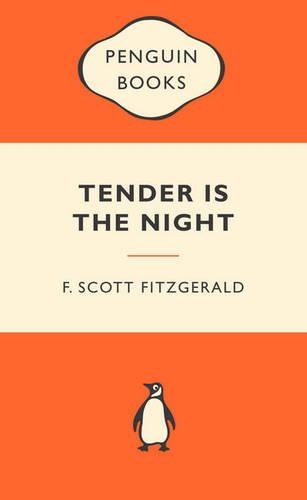
Tender is the Night: Popular Penguins
(Paperback)
Available Formats
Paperback
Published: 7th January 2019
Paperback
Published: 1st March 2011
Paperback
Published: 25th September 2001
Hardback
Published: 7th November 2011
Paperback
Published: 18th June 2018
Paperback
Published: 29th October 2013
Paperback
Published: 1st October 2012
Paperback
Published: 25th February 1999
Paperback
Published: 13th November 2024
Paperback
Published: 27th March 2012
Paperback
Published: 12th January 2022
Paperback
Published: 5th May 2011
Paperback
Published: 29th June 2009
Publishing Details
Tender is the Night: Popular Penguins
By (Author) F. Scott Fitzgerald
Penguin Books Ltd
Penguin Books Ltd
29th June 2009
United Kingdom
Classifications
Physical Properties
Paperback
408
Width 111mm, Height 180mm, Spine 25mm
232g
Description
Dick and Nicole Diver have turned the French Riviera into the playground of the rich and glamorous. Among their circle is Rosemary Hoyt, the beautiful starlet, who is unaware of the corruption and dark secrets that haunt their marriage. When Dick becomes entangled with Rosemary, he fractures the delicate structure of his relationship with Nicole and the lustre of their life together begins to tarnish. Tender is the Night reflects not only Fitzgerald's own personal tragedy, but also the shattered idealism of the society in which he lived.
Author Bio
F. Scott Fitzgerald was born in 1896 in St Paul, Minnesota, and went to Princeton University, which he left in 1917 to join the army. He was said to have epitomized the Jazz Age, which he himself defined as 'a generation grown up to find all Gods dead, all wars fought, all faiths in man shaken'. In 1920 he married Zelda Sayre. Their traumatic marriage and her subsequent breakdowns became the leading influence on his writing. Among his publications were five novels, This Side of Paradise, The Great Gatsby, The Beautiful and the Damned, Tender is the Night and The Last Tycoon (his last and unfinished work); six volumes of short stories and The Crack Up, a selection of autobiographical pieces. Fitzgerald died suddenly in 1940. After his death The New York Times said of him that 'He was better than he knew, for in fact and in the literary sense he invented a 'generation'. . . he might have interpreted and even guided them, as in their midle years they saw a different and nobler freedom threatened with destruction.'
